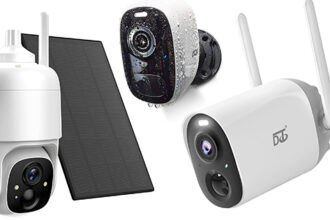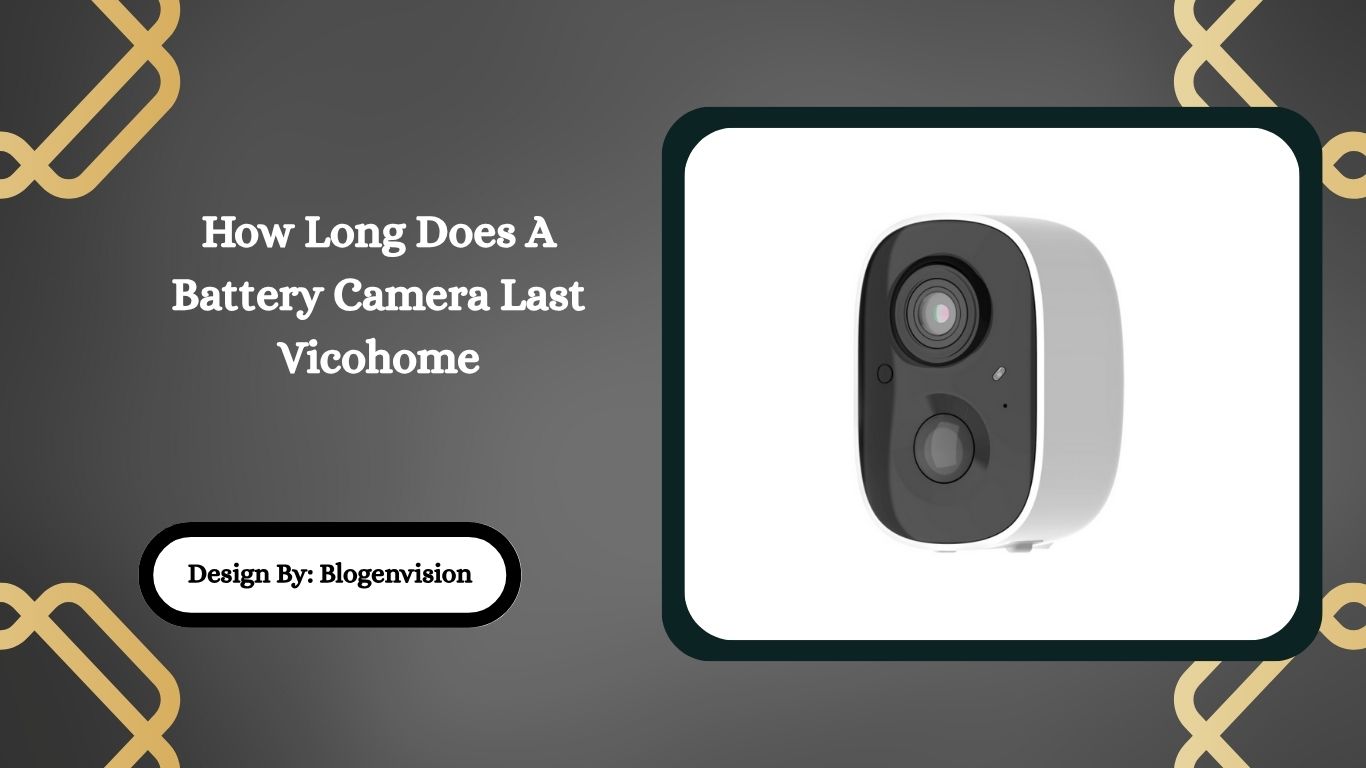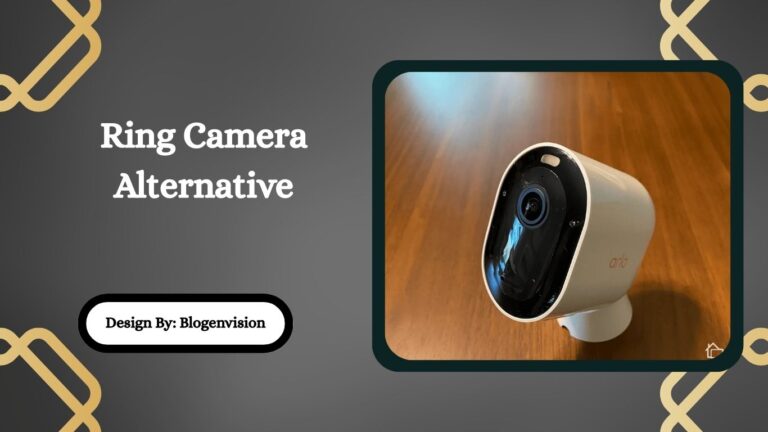How Long Does A Battery Camera Last Vicohome – Complete Guide!
A Vicohome battery camera typically lasts between 2 to 6 months on a single charge, depending on motion activity, recording length, night vision use, and environmental factors like cold weather.
Battery-powered security cameras are becoming the go-to choice for smart home users who want flexibility, easy installation, and remote monitoring. One brand that has caught attention is Vicohome—known for offering reliable, app-integrated, cloud-based security solutions.
But if you’re planning to buy or already own one, a common question is: How long does a battery camera last from Vicohome?
This comprehensive guide will help you understand the battery lifespan of Vicohome cameras, what affects it, and how to get the most from your device.
What Is a Vicohome Battery Camera?
Vicohome is a smart camera platform used by several security camera brands. These cameras are typically wireless, battery-powered, and controlled via the Vicohome app. Brands that use the Vicohome platform include:
- Aosu
- Litokam
- Luowice
- Dekco
- More third-party OEMs
These battery cameras usually feature:
- 1080p or 2K video resolution
- Motion detection
- Two-way audio
- Cloud and SD card storage
- Integration with Alexa or Google Assistant
Average Battery Life of Vicohome Cameras
On average, a Vicohome battery camera lasts between 2 to 6 months per charge—but this depends on many factors.
🔢 General Battery Life Estimates:
| Usage Scenario | Battery Life Estimate |
| Low Activity (few triggers/day) | 5–6 months |
| Medium Activity (daily motion events) | 3–4 months |
| High Activity (constant triggers or live view) | 1–2 months |
These numbers are based on internal battery capacity (usually 5200–6700mAh) and how often the camera wakes up to record or send alerts.
What Affects Vicohome Battery Camera Lifespan?

Several factors influence how long the battery will last in real-world usage. Understanding these can help you optimize your camera’s performance.
1. Motion Detection Frequency
Every time the camera detects motion, it wakes up, records, and sends a notification. In high-traffic areas, this will significantly drain the battery faster.
2. Video Recording Length
Some Vicohome-supported cameras allow you to set recording durations (e.g., 10, 20, or 30 seconds). Longer videos = more battery usage.
3. Live View Usage
Accessing live video frequently via the Vicohome app causes the camera to remain active, which uses more power.
4. Wi-Fi Signal Strength
Poor Wi-Fi signal forces the camera to use more power to maintain a stable connection. Ensure the device is placed within a strong Wi-Fi zone.
5. Weather Conditions
Extreme cold can reduce lithium-ion battery performance. In subzero environments, you may notice a faster battery drain.
6. Night Vision and IR Lights
Cameras with strong night vision or infrared LEDs use more battery at night. If your camera records mostly after dark, expect shorter battery life.
Is Vicohome Battery Camera Rechargeable?
Yes, most Vicohome-compatible cameras use built-in rechargeable lithium batteries. You typically recharge them using:
- A standard micro-USB or USB-C cable
- A 5V/1A or 5V/2A wall adapter
- Optional solar panels for continuous charging
Charging time ranges between 4 to 8 hours, depending on the battery capacity and charger speed.
How to Extend Battery Life of Vicohome Camera?
Want to get the maximum out of your battery? Follow these best practices:
- Reduce Motion Sensitivity: In the app settings, you can adjust the motion detection sensitivity. Set it to “low” if you’re getting too many false triggers from leaves or animals.
- Adjust Activity Zones: Use activity zones to limit which areas the camera monitors. This reduces unnecessary recordings.
- Lower Recording Duration: Change the video clip length to 10–15 seconds to save battery.
- Turn Off Push Notifications: Only keep essential alerts enabled, especially if the camera is in a low-risk area.
- Enable Power Saving Mode: Some Vicohome-enabled devices offer a power-saving mode, which reduces frequency of recordings and data uploads.
- Add a Solar Panel: Vicohome-compatible solar panels keep your battery topped up with minimal effort, especially in sunny regions.
How to Check Battery Level in Vicohome App?
To monitor your battery status:
- Open the Vicohome app
- Tap on your camera
- Look for the battery icon or “Device Info” section
- It will show percentage and estimated battery life
You’ll also get notifications when the battery is low.
Expert Tips: Real User Experiences
Here’s what real users say about Vicohome battery life:
“I get about 4 months on one charge with 15–20 motion events per day.”
– User on Reddit
“Added a solar panel, and I haven’t had to charge manually in 6 months.”
– Amazon Review
“The cold winter did reduce my battery life, but I just lowered the recording time and it helped.”
– Vicohome App User
Comparison Table: Battery Life Across Brands Using Vicohome App
| Brand | Battery Capacity | Est. Battery Life | Solar Panel Support |
| Aosu | 6700mAh | 4–6 months | Yes |
| Dekco | 5200mAh | 2–4 months | Yes |
| Litokam | 6000mAh | 3–5 months | Yes |
| Luowice | 5000mAh | 2–3 months | Yes |
Note: These are general estimates; actual life depends on usage.
How long does a Battery Camera Last Vicohome 5000mah?

A Vicohome battery camera with a 5000mAh battery generally lasts around 2 to 3 months on a single charge, depending on usage. Factors such as frequent motion detection, live streaming, night vision activity, and weak Wi-Fi signals can cause the battery to drain faster.
In low-traffic areas with minimal motion triggers, the battery may last longer. To extend battery life, users can adjust motion sensitivity, reduce video recording time, and consider using a compatible solar panel for continuous charging.
When to Replace the Battery?
Most Vicohome battery cameras do not allow for battery replacement, as they are sealed units. If the battery degrades significantly over time (usually after 2–3 years), you may need to replace the entire unit. Some models allow you to:
- Use external power banks temporarily
- Connect to permanent solar panels
Always check your model’s documentation for specific instructions.
FAQs:
1. Can I extend battery life with a solar panel?
Yes, Vicohome-compatible solar panels keep the battery charged using sunlight. It’s an excellent way to avoid frequent recharging, especially in areas with lots of motion or outdoor exposure.
2. Does the Vicohome app warn about low battery?
Absolutely. You’ll receive push notifications when your battery level gets low. You can also monitor battery status at any time within the app’s “Device Info” or camera settings section.
3. Is it safe to leave the camera outside in winter?
Yes, but expect shorter battery life in cold weather. Consider using a weatherproof cover or solar panel and check the camera’s rated operating temperature for safe usage.
4. How often should I charge my Vicohome camera?
On average, every 3–5 months, but this depends on usage. High activity areas may require charging every 1–2 months unless supported by a solar panel.
5. Can I replace the battery in my Vicohome camera?
Most Vicohome battery cameras have built-in, non-removable batteries. Once the battery wears out, you may need to replace the device or contact the manufacturer for support or warranty options.
Conclusion
Vicohome battery cameras offer great flexibility and smart features for home security, with average battery life ranging from 2 to 6 months depending on your setup. Motion frequency, recording length, and environmental conditions all influence battery performance. By using features like motion zones, solar panels, and power-saving settings, you can greatly extend the life of your camera between charges. Whether you’re installing indoors or outdoors, understanding your camera’s power needs helps ensure continuous protection without frequent interruptions.







